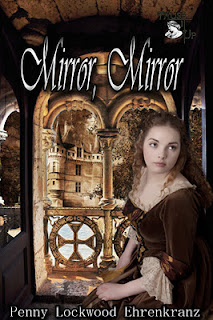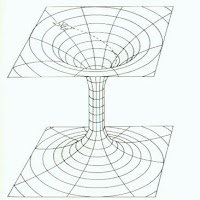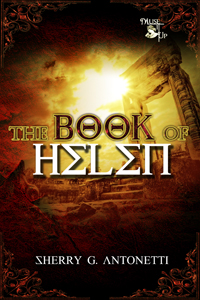I wanted to talk today about the art of scrying. In Mirror, Mirror, a wise woman uses her special scrying mirror to local Lindsey Baker in the twenty-first century. Lindsey looks exactly like Prudence, a young girl who is in love with Master Graham. Unfortunately, Graham cannot marry Prudence because she is the baker’s daughter. Graham’s father insists he has to marry a young woman with more influence and money and thus has arranged a marriage for him with the burgher’s daughter.
Lindsey purchases a mirror which the shopkeeper jokingly tells her is a scrying mirror. Through this mirror, Lindsey is transported back to the fifteen century where she is given the task of convincing Graham that he must marry Prudence.
Scrying is the ancient art of divination achieved by a person of talent focusing on an object with a shiny surface until visions appear.
The term scrying comes from the English word “descry.” This is defined as “to see,” “to make out dimly” or “to reveal.” Scryers were sought by people who wanted to know about their future, or needed answers to questions, solutions to problems, or help in finding lost items or people. During the Middle Ages when scrying was popular, most scryers were wise women or wise men who were sometimes referred to as witches. These people were naturally gifted with second sight.
We usually think of scryers using crystal balls, but crystal balls were expensive, and not many scyers could afford them. Many of the early scryers used ponds or lakes on moonlit nights. They also used mirrors, polished stones or metal, or bowls of water.
Mirrors which are used are generally painted black on the concave side. Witches may make the magic mirrors themselves, painting and decorating them during the waxing moon and then consecrating them in traditional rituals used for other witches tools.
Traditionally, a witch uses a magic circle to work her scrying. The best results are obtained at night. The witch will concentrate upon her chosen tool and will be rewarded with visions either on the surface of the tool or by receiving mental images. To be able to scry, the witch needs to turn off all distractions and enter an altered state of consciousness. Some ancient grimoires indicate a great deal of preparation was necessary for the witch to perform a scrying. Some of the steps included fasting, prayers, and summoning various spirits. They would definitely have to do a psychic cleansing of both themselves and the area where they would be scrying.
First the person scrying will quiet her mind, relax and concentrate on the reflective surface. Keeping her mind blank, the witch will look within the glass, ignoring reflections or light on the surface. Sinking into the glass, the witch forms a question in her mind. The glass will appear to cloud over, become smoky, and a dark patch appears. At this point, pictures, signs or other symbols that the witch must interpret will appear in the glass.
Prudence approached the wise woman in Mirror, Mirror to learn what she could do to make Graham go against his father’s wishes. When Lindsey is brought through time, Prudence disappears. Mirror, Mirror doesn’t follow Prudence to see where she goes, but I’ll let you know that her spirit inhabits Lindsey’s body in the twenty-first century while Lindsey’s spirit is trapped in Prudence’s.
Please join me in this journey through time to see what happens to Lindsey in Mirror, Mirror.
 Mirror, Mirror
Mirror, Mirrorby Penny Ehrenkranz
Lindsay Baker’s purchase of an antique mirror sends her back in time to salvage a love torn apart by class restrictions.
Lindsay Baker is intrigued by everything about the middle ages, but when she purchases an antique mirror and a costume to attend a Renaissance Faire, she suddenly finds herself transported back in time. There she finds she’s been called by a witch to right a terrible wrong.
Graham loves Prudence, but he can’t marry her because he’s landed gentry, and she is only the baker’s daughter. Before Lindsay can return to her own time, she must convince Graham to marry against his father’s wishes. Unfortunately, she also finds herself falling for the handsome gentleman.
Can she find her way back to her own time, or will she be stuck in a time when women had no rights?
Mirror, Mirror is published by MuseItUp Publishing. The bookstore buy link is: http://museituppublishing.com/bookstore/index.php/now-available-in-ebook/mirror-mirror-detail



.jpg)

















